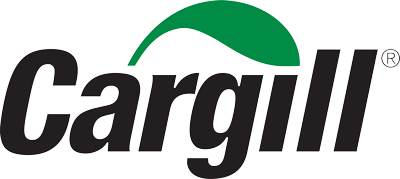- VIEW ALL ARTICLES
- Supporting sustainability requires a holistic and individual approach
Supporting sustainability requires a holistic and individual approach
With Norman Downey, Commercial Director UK and Ireland

Small tweaks and attaching a sustainability sticker on feed products will not achieve the targets expected of our livestock industry. It requires a more comprehensive and integrated approach. Cargill’s sustainability-led innovations are geared to provide this more holistic requirement, with options that can be designed to suit individual situations.
These developments include a global platform of sustainability solutions for ruminants, an advanced AI tool that accurately images gut microbiome and can be used to improve dietary precision in broilers, and programmes to ensure a sustainable source of soya now used in Cargill UK’s pig and poultry feeds.
Its latest development, introduced in May 2023, is a global ruminant production sustainability platform, Reach4ReductionTM. This pulls together ruminant services and tools that can be selected on an individual basis to balance efficient production with reduced carbon emissions on dairy and beef units.
It has three pillars: managing on-farm productivity; optimising health and nutrition; and new innovations.
Each includes sustainability tools, such as the modern formulation technology used in the Cargill Nutrition System, and the advanced dairy rationing programmes DairyMAX and Dairy Enteligen. It also draws on feed digestibility technology such as Diamond V XPC™ which is used in specialised rumen buffers. Its methane-reducing feed product SilvAir® is one of an expanding portfolio of innovative products that also supports sustainability goals.

More precision
More accurate and specific use of inputs supports sustainable production, and this is achieved with modern formulation technology such as the Cargill Nutrient System (CNS). Designed by Cargill, CNS uses real time data on the nutritional analysis of ingredients, which allows for continuous improvements in production efficiency and on the environmental impact of diets.
Feed compounders can use accurate and current information from CNS in more precise rationing programmes, like DairyMAX or BeefMAX.
More accurate use of ingredients in these programmes, for example those with an improved amino acid profile which matches the animal requirement at specific life stages, will reduce waste and improve feed efficiency. More precise nutrition supports improved sustainability in livestock production.
Trials using different levels of crude protein in calf milk replacer showed that a 2% reduction in crude protein saw no detrimental effect on performance and growth providing an accurate balance of amino acids were included.
It’s important to use up-to-date knowledge to ensure maximum use is made of the correct ingredients and other ‘non-essential’ ingredients are not wasted. This saves input costs, but it also helps to meet environmental goals, such as Defra’s water nutrient pollution targets.

As part of its environmental improvement plan, the target, set for December 31, 2038, is a 40% reduction of nitrogen, phosphorus and sediment from agriculture into the water environment from a 2018 base level. Interim targets of between 10% and 15% by January 31, 2028 have also been published.
Methane-reducer
Enteric methane produced by ruminants is the main contributor to greenhouse gases in the livestock sector. New innovations, such as SilvAir®, are proven to reduce methane production. It also brings other dietary benefits that support more sustainable production.
SilvAir® is a carefully manufactured feed-grade calcium nitrate comprising 76% nitrate and 22.5% calcium, with a dry matter of 84%. In trials, where it is included at a rate of 1.6% of the total dry matter in dairy diets, it has been shown to reduce methane emissions by up to 10%.
It also offers an alternative source of dietary protein and calcium, adding to its contribution to more sustainable production.
Diets that include SilvAir® must be reformulated to ensure correct amounts of crude protein are supplied and excess levels are avoided. It must also be used in compound feeds at the recommended inclusion rates, that are based on scientific research.

AI in poultry
Another example of a sustainability-led and integrated programme is Cargill’s poultry microbiome intelligence service Galleon®, as shown in Figure 1.
This service uses a representative number of faecal samples from a flock to determine the gut microbiome. Swabs are analysed and the results are identified against the company’s poultry microbiome database.
Cargill has collected a profile of gut microbiome from flocks across the globe for the past decade. This database now holds more than 25,000 samples and is still growing.
It provides UK poultry producers with access to one of the world’s largest microbiome databases and, as more samples are added, this database’s accuracy increases.

The platform links automated laboratory analysis, that focuses on a list of microbial biomarkers shortlisted during the past few years, and a proprietary intelligence tool. This tool combines powerful statistical designs with advanced artificial intelligence models to extract the most important relationships that can be converted into insights for practical application.
The validation of this platform includes more than 100 events (datasets) between research trials and field exercises across a range of countries and farm conditions.
This is where the knowledge and skill really step in as the results on their own are meaningless. Cargill has a specialist team in poultry gut microbiome. It’s not something that can be done on farm, but once these details are known the technical team can work with producers to suggest interventions to help improve performance.
On-farm benefits
Detailed and accurate information about the farm’s unique gut microbiome profile can be applied to practical farm management and nutritional practices.
It provides a link to meeting the challenges between microbiome composition, bird and flock performance and interventions in commercial practice.
Information specific to a flock can be used to assess health status, resilience to disease, livability and overall performance. The information can also be used to help understand the effect of changes in diet or management.
It has been used to identify a specific pathogen that causes leg health issues. And, for feed companies, it has been used to demonstrate the effect of an additive on gut microbiota. Even if a particular additive does not result in a big gain in performance, the information can help determine the cost-effectiveness of the additive.

In other cases, microbiome results are used to fine-tune formulations to promote bacteria that will help improve feed use and conversion, and support production sustainability.
Galleon® received a top global accolade by winning a Gold in the Food and Agriculture Advancements category in the 2023 Edison Awards. It is already being used in flocks in the UK.
This spring saw Cargill Animal Nutrition UK move to using only sustainable soya sources in its Neopigg Max® piglet diets and the pre-starter chick diet Neochicc.
This sustainable soya, Triple S® soya, is sourced from areas in Brazil, Argentina and Paraguay that are guaranteed deforestation-free since 2008. Importantly, the soya in Triple S® is also fully traceable to individual farms so the supply chain, including feed compounders and retailers, know exactly where it comes from.
Its production is part of farmer-focused sustainability programmes with each producer independently audited and supported with agronomy advice and continuous improvement goals. The farmers must meet social, economic and environmental targets, set out under the Triple S® production guidelines.

For pig and poultry producers, Triple S® soya has the same nutritional value as the previously used soya, so no reformulation of diets is required. It meets the European Feed Manufacturers’ Federation (FEFAC) requirements for sustainably sourced soya. And it is also recognised by UK retailers as a step towards more sustainable sourcing of animal feed and increasing sustainability in the supply chain.
Cargill’s Provisoy®, a patented highly digestible processed soya used in monogastric diets, is also manufactured using soya that is certified by the Round Table on Responsible Soy (RTRS).
Multi-factorial
Improving sustainability is multifaceted and progress will rely on many changes. This is why Cargill has introduced species-specific programmes that put products and services with efficiency and welfare benefits designed to improve sustainability under one roof. It then allows the right combination to be used to suit each business. Improved sustainability takes an all-round approach and no one solution fits all.


